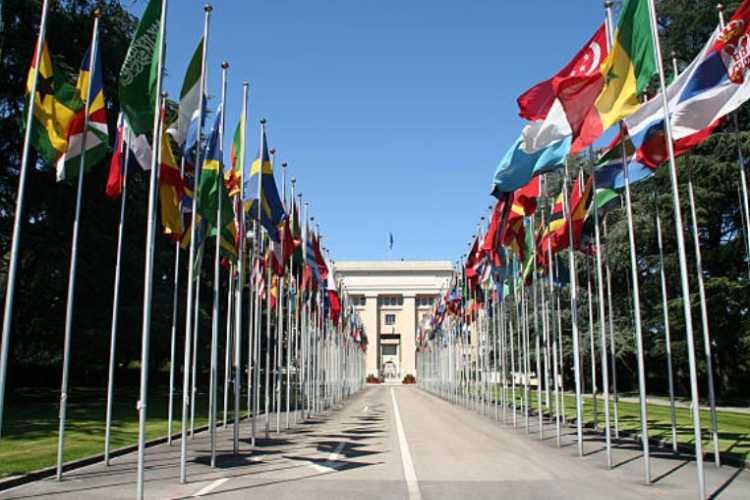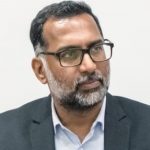
As the architecture of global power shifts, the United Nations — a body born in the aftermath of World War II for a unipolar age — is confronting a “reform or perish” moment. Multipolar pressures from China, and organisations like BRICS are not just challenging the UN’s legitimacy; they are demanding radical change in representation, efficiency and governance. Without substantial reforms — especially to the Security Council, budgetary contributions, and institutional duplication — the UN risks becoming marginalised or overtaken by newer multilateral coalitions that better reflect emerging power realities.
The urgency of reform is sharpened by the growing mismatch between the UN’s structure and today’s balance of power. When the organisation was founded in 1945, the five permanent members of the Security Council reflected the victors of World War II and the unipolar dominance of the West. Eight decades later, the world is multipolar: China is a strategic rival to the United States, BRICS nations represent a larger share of global GDP than the G7, and the Organisation of Islamic Cooperation speaks for 57 countries spanning Asia, Africa and the Middle East.
READ | India-China relations: Modi–Xi talks signal cautious thaw
Yet the UN’s composition, working methods and finances remain locked in a bygone era, eroding its credibility and constraining its effectiveness at precisely the moment when global crises demand collective action.
The multipolar world and the rise of BRICS
The global order is no longer dominated by the West alone. BRICS nations (Brazil, Russia, India, China, South Africa) now expanded to include Egypt, Ethiopia, Indonesia, Iran, Saudi Arabia and the UAE, are steadily staking claims in global governance structures — IMF, World Bank, WTO and notably, the UN itself. At their 2025 summit in Rio de Janeiro, BRICS reiterated the demand for Security Council reform: increased representation, elimination or at least limitation of veto power by some permanent members, and a more equitable voting regime reflective of the Global South.
These calls are not novelty; they are rooted in longstanding frustrations over anachronistic UN structures. The BRICS position is that institutions designed for a bygone world (mid-twentieth century) can no longer carry the weight of contemporary crises—climate, conflict, poverty, migration—and the UN must adapt to retain relevance.
Security Council reform
At the heart of the crisis of legitimacy is the UN Security Council. BRICS and the OIC both insist that the Security Council cannot retain its current permanent membership and veto structure without being widely seen as unfair, unrepresentative, and dysfunctional. India and Brazil, among others, press for permanent seats; African nations invoke the Ezulwini Consensus; the OIC insists that Muslim representation—that is, the “Islamic Ummah”—must be adequately provided for in any reform.
Reform of the vote, of working methods, even voluntary constraints on the use of veto are being discussed. Yet Member States have not yet agreed on a comprehensive path forward. The UN risks impotence unless it acts decisively on this front.
Budget crisis and China’s role
UN reform does not depend only on structural or symbolic change. Financial stress is forcing reforms. Recent reporting reveals that China’s delayed payments to the UN have increased sharply—its share of the regular budget has risen to about 20% in 2025, just below the United States’ 22%—yet its payments are late, adding pressure to an already fragile operational budget.
These delays contribute to a sharp cut in the UN operational budget (17 % for 2025), making it difficult for the UN to plan, to maintain staff, and to deliver on its mandates. Meanwhile, BRICS finances ministers are also pushing for reforms to institutions like the IMF in how quotas are allocated—demanding that voting power reflect output and purchasing power, not simply historical privilege. Financial stress, therefore, is both symptom and leverage: those funding the UN (or withholding funds) hold de facto power over whether it reforms or fails.
Role of the OIC and the quest for representation
The OIC—representing 57 countries of the Muslim world—is increasingly active in UN reform debates, especially on representation, human rights, conflict resolution, and institutional positions. It stresses that any Security Council reform that neglects Muslim-majority countries will be rejected.
The OIC also seeks enhancement of its institutional capacity: coordination of UN-OIC cooperation on human rights (for example in Afghanistan), on displacement (the Rohingya), and on peace and conflict issues. Yet the OIC faces its own limitations: political fragmentation, limited enforcement power, constrained finances. But its demands for voice and fairness add an indispensable moral dimension to the reform imperative: legitimacy is as critical as efficiency.
UN reform: Consolidation and institutional overhaul
Beyond representation, the United Nations is suffering from duplication, inefficiency, and rising costs. Reports—including internal UN reviews—propose merging agencies, reconfiguring mandates, reducing silos, and consolidating departments for peace & security, development, human rights. (e.g. proposals to combine UN Women with UN Population Fund, merge refugee and migration agencies, climate arms into environment programmes) are being floated. Internal memos admit overlapping mandates, inefficiencies, and unsustainable expatriate costs. UN80 is the name given to this set of proposed reforms.
But many of these reforms require the assent of Member States, not just the UN Secretariat. Without political will, even well-crafted proposals will stall. Unless the UN becomes leaner, more coherent, more capable of acting swiftly, its moral claim to global leadership will be hollow.
UN must reform to survive
Given this “reform or perish” reality, some policy prescriptions may guide Member States and UN leadership toward a future-proof institution.
Security Council expansion: Expand permanent membership to include major democracies of Asia, Africa, Latin America. Reform veto power—perhaps through restricting its use in certain contexts, requiring explanations for vetoes, or introducing time limits. Implement the Ezulwini Consensus and similar global south proposals with concrete timetables.
Financial reform: Reform the dues and voluntary funding system to reduce late payments, ensure predictable funding flows. Create binding rules or incentives for larger economies—China, the U.S., EU member states—to pay regularly and fully. Consider “core funding” pools that reduce dependency on conditional voluntary contributions.
Merge and streamline agencies: Adopt the UN80 proposals: merge overlapping entities, reduce overlaps in mandates, locate operations closer to the regions being served rather than in costly global centres. Align humanitarian, peace, development, climate and human rights efforts to reduce duplication.
Enhance representation: Beyond Security Council seat sharing, ensure that Muslim-majority countries and small states have meaningful voting power in General Assembly and in major UN bodies. Support the elevation of qualified candidates from those countries to senior UN posts. Boost OIC-UN collaboration on human rights, conflict mediation and displacement crises.
Reform UN working methods: Require more transparency in veto use; enforce rules of accountability and ethical standards; publish performance assessments; increase citizen-oriented reporting; ensure that UN leadership appointments reflect global diversity.
Delay is no longer affordable. A UN which fails to reform risks becoming irrelevant, hollowed out by competing institutions such as expanded BRICS or OIC coalitions, overshadowed in global debates of finance, climate, security. The loss will not only be symbolic but strategic: instability, unaddressed conflicts, climate inaction, human suffering — especially among poor and vulnerable nations — will multiply. Reform is not a generous option; it is essential.
Only if the United Nations embraces Security Council reform, financial reform, representation, and efficiency in governance, will it remain the global institution best placed to carry “We the Peoples” forward in a world that no longer revolves around one or two superpowers. Reform, in short, is not merely desirable — it is survival.
Anil Nair is Founder and Editor, Policy Circle.

